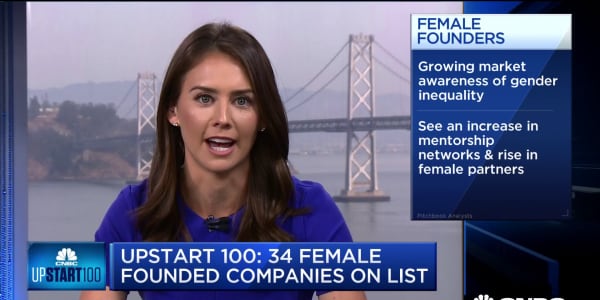It's not surprising that Breakout Labs, the Thiel Foundation's seed-stage fund that aims to propel radical science to improve human health, has invested in SciBac, a company targeting the growing problem of antibiotic resistance. Among health risks that threaten mankind, the one that may prove most deadly is the rise of superbugs — drug-resistant bacteria that can make simple surgeries and medical treatments like chemotherapy impossible.
Over the years ever more powerful strains have spread around the world. It's a crisis that has even garnered the attention of world leaders at the United Nations. That's because the urgency is clear: 700,000 people die each year worldwide from antibiotic-resistant infections, and that number is increasing by the day. In the United States alone at least 2 million people become infected with antibiotic-resistant bacteria each year, according to the Centers for Disease Control and Prevention, and 23,000 die each year as a result of those infections.
The future trend is alarming. According to the World Health Organization, antimicrobial resistance is projected to kill more people than cancer by 2050, which would reduce global economic output by between 2 percent and 3.5 percent — a staggering $100 trillion cut in GDP globally — and severely cripple modern medical and surgical advances.
A $40 billion superbug market Big Pharma is neglecting
It's no wonder many scientists call antimicrobial resistance "a slow-motion tsunami." Yet lack of drug development and discovery by Big Pharma has exacerbated the problem. "Within the last two years, five large pharmaceutical and many biotech companies have exited the field due to the scientific, regulatory and economic challenges posed by antibiotic discovery and development," said Thomas Cueni, chairman of the AMR Industry Alliance, a coalition of 100 companies and pharmaceutical associations set up to curb antimicrobial resistance. Among the pharmaceutical giants to exit this research field: Novartis, AstraZeneca, Sanofi and Allergan.
More from CNBC Upstart 100:
The void has spurred many nimble biotech start-ups to look for solutions in this new $40 billion superbug market. One is SciBac, a biotherapeutics company named to the 2018 CNBC Upstart 100 list. The Silicon Valley start-up shifts the paradigm on how to tackle superbugs. It is developing a microbe pill to boost the body's microbiome in the gut, lungs and skin to kill bacteria that cause antibiotic-resistant disease. Its first product treats and prevents Clostridium difficile infection (CDI), commonly known as deadly diarrhea and our nation's top antibiotic-resistant threat. It is also working on developing a drug to treat and prevent chronic Pseudomonas infections in the lungs of cystic fibrosis patients.
"Our patented platform technology has applications to treat other infections," said SciBac CEO Jeanette Mucha. "It allows us to mate different species of microbes into a single hybrid that can target specific diseases through multiple modes of action that kill the bacteria and toxins in the body. At the same time, the technology bolsters the microbiome for fast recovery."
According to Hemai Parthasarathy, Ph.D., scientific director of the Thiel Foundation's Breakout Labs, "It's clear we are running out of an arsenal to attack the superbug crisis, and the world needs new approaches."
To help SciBac's team move their technology out of the lab, Breakout has taken a board role to help with business strategy and will help introduce the founders to venture capitalists and potential business partners in the months ahead.
To date, the three-year-old upstart has raised $1.45 million in equity financing and a $3.7 million grant from CARB-X, a nonprofit public-private partnership funded by the U.S. government, Wellcome Trust, the NIH, Bill and Melinda Gates Foundation and the U.K government, that invests in antibacterial research worldwide. Its goal: to fast-track the development of a pipeline of new antibiotics, vaccines and other products to fight the war on superbugs.
"SciBac is essentially creating a new drug that is an antibiotic alternative," said Kevin Outterson, executive director of CARB-X. "The microbiome is providing exciting new approaches to the prevention and treatment of life-threatening infections of all kinds. It's a promising new scientific approach."
As Outterson explains, most of the innovation in this field is coming from tiny pre-clinical trial companies like SciBac. That's because many Big Pharma companies feel the margins aren't worth the high R&D costs, which can run into the billions of dollars. "As soon as you make an antibiotic, it is already dying because bacteria are evolving in response to the drug. Eventually, random mutations will make antibiotic resistance come."
For this reason, drug companies feel antibiotics are undervalued in the marketplace.
To help boost the start-up's odds of success, CARB-X will provide SciBac with consultants and experts in R&D, toxicity and regulation that can help them navigate how to get their science from the lab to clinical trials for FDA approval. It has set milestones for the company that it must meet to get financing.
Like many entrepreneurs pursuing breakthrough science, Mucha seems energized by her formidable challenge of kickstarting the development of a new drug.
Mucha said she and co-founders Anthony Cann, a chemical engineer, and Derik Twomey, a cell biologist, stumbled on the idea. They had experience working with a species of bacteria known as clostridium while developing a biofuel for Cobalt Technologies. After that company closed shop, Mucha set up a lab in her garage to experiment with probiotics and see if she could induce gene transfer in bacteria. It worked. Then the entrepreneurs moved into an incubator, Molecular Sciences Institute in Milpitas, California, to set up a lab. Ten months later they applied to Breakout Labs for $350,000 of seed financing, which gave them matching funds to help secure the CARB-X grant. Now the company is in the midst of getting bridge financing to fund clinical trials and manufacturing.
"This drug development will take time," Mucha said. "It won't be ready for FDA drug approval until 2025. But we're seeing a lot of investor interest in this alternative technology."





